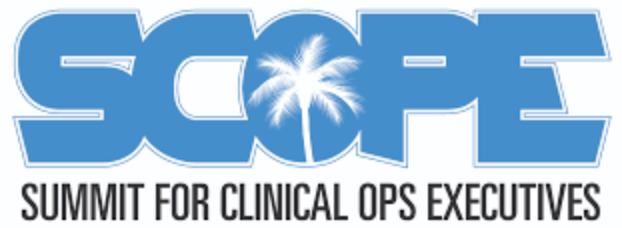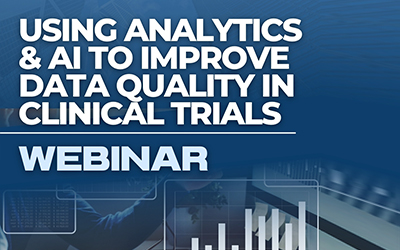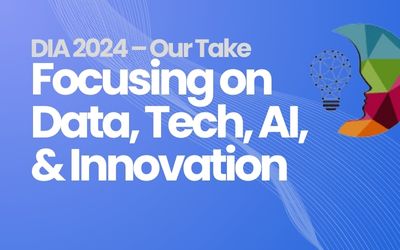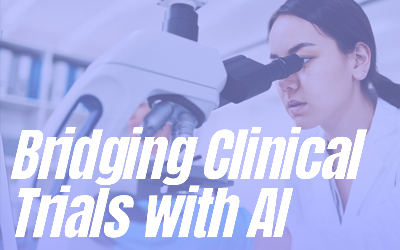SCOPE Summit 2024
–Our Take
By Sina Adibi, CEO, Adaptive Clinical Systems



The show was scheduled in an awkward window on the calendar! Sandwiched between Super Bowl Sunday and Valentines Day.
Nonetheless, there was a great turnout for the event with some 4,000 attendees from 27 countries representing over 850 different organizations. The majority of the sessions were well attended, and the keynotes were standing room only.
Time is Life
The main keynote was presented by Robert Goodwin of Pfizer with the title, “Time is Life: Pfizer’s Approach to Accelerating Clinical Development.” Goodwin lamented that post-pandemic we have relapsed into our old inefficient ways. The rapid performance during COVID must be made sustainable. He stressed that working 24X7 is not sustainable. He quoted my executive coach Marshal Goldsmith of “What got you here won’t get you there.”
It was refreshing to hear him show that Pfizer has a focus on collaboration with Sites. There is no question that Sites now have a bigger voice in the study execution, and Goodwin went further by suggesting the following:
● Listen and learn from sites, and don’t get defensive.
● Protocol must be attractive to sites by considering real-world care considerations.
● Taking into account the COST-SPEED-QUALITY triangle – be sure and prioritize with Quality first, followed by Speed, and finally, Cost.


Goodwin set the theme for the rest of the conference by going through several AI applications utilized by Pfizer in clinical research — ranging from AI-enabled biomarker analysis through to use of “AI created digital personas” to enhance tele-health sessions during patient visits!
The latter was unsettling to say the least. Admission that the “digital persona” reflects the patient’s facial gestures and shows empathy – whilst impressive – raised eyebrows.
Pfizer’s moon shot is to reduce the development cycle time from first in human to approval by 3 years. In 2019, the company’s track record showed that it took 8.5 years, and that Pfizer has further reduced this to 6.33 years by 2022. Reducing the cycle time by almost half to 3.5 years is a great goal.
Embracing the AI Revolution
The emphasis on AI continued with a panel discussion, Use Cases of Generative AI in Clinical Trials: Beyond Can We…Where and When Should We?
MODERATOR: Brian Martin, Head of AI, R&D Information Research, Research Fellow, AbbVie, Inc. PANELISTS: Samar Noor, Vice President, Head of Statistical Programming, Global Biometric Sciences, Bristol Myers Squibb Co. Prasanna Rao, Head, AI & Data Science, Data Monitoring and Management, Clinical Sciences and Operations, Global Product Development, Pfizer Inc. Neil Garrett, PhD, Head of Regulatory Medical Writing, Johnson & Johnson Hoifung Poon, PhD, General Manager, Health Futures, Microsoft Research.


All panelists shared the excitement of AI and spoke of various applications of it across the spectrum – ranging from anomaly detection and data cleaning through to medical coding and beyond. A common theme throughout was to use AI as a tool, and to not completely relinquish all decisions to the machine.
Microsoft’s Hoifung Poon referred to AI as a catalyst and a tool that does make mistakes and requires human oversight.
This sentiment was echoed by the other panelists, citing current vulnerabilities of AI such as:
● Aggregating clean valid data that is updated consistently is key to training and maintaining an AI algorithm. A robust clinical data hub is an important companion for any significant AI project.
● Most training data is US-centric and to a far lesser extent European and very little from Asia.
● There was extensive discussion about security, privacy, ethics and compliance. All valid cautionary areas for any new emerging technology.
The only difference with AI is that the speed of advancement is truly dizzying. As an example, within a
very short period, we have seen OpenAI write poetry, then expand to paint artist quality still images to
the most recent announcement of AI generated videos that are commercial grade.
Let’s acknowledge that we are now in an AI Revolution era – similar to the era of the Industrial
Revolution. In the Industrial Revolution, everything changed from the way we worked through to the
way that we produced goods. Today, we can expect every aspect of our work, life, and research to
change as well.
I do want to end this blog by quoting Brian Martin of Abbvie:
“With the advancements in technology, it is no longer a case of ‘can we,’ but a case of ‘should we.’”
The SCOPE Summit continues to provide excellent content on the latest issues for clinical trial research.
Ask for a demonstration today.
Blog Posts & Resources
Using Analytics and AI to Improve Data Quality in Clinical Trials
Using Analytics and AI to Improve Data Quality in Clinical Trials. This webinar was held on Tuesday, July 9. A summary of the Q&A and Audience...
DIA 2024 – Our Take – Focusing on Data, Tech, AI, and Innovation
DIA 2024-Our TakeFocusing on Data, Tech, AI, and InnovationHosted in San Diego, the DIA Global Annual Meeting celebrated 60 years of innovation. The...
Bridging Clinical Trials with AI: The Effectiveness of Adaptive Tooling and Data Architecture
Bridging Clinical Trials with AIThe Effectiveness of Adaptive Tooling and Data ArchitectureBy Eftim Pop-Lazarov, Chief AI Product Officer, Adaptive...


